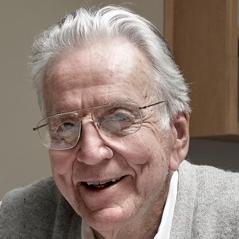2013 Recipients

2013 Recipient
For their seminal contributions to concepts and methods of creating a genetic map in the human, and of positional cloning, leading to the identification of thousands of human disease genes and ushering in the era of human genetics.
David S. Hogness, PhD, is the Emeritus Rudy J. and Daphne Donohue Munzer Professor in the Departments of Developmental Biology and of Biochemistry at Stanford School of Medicine. He is a member of the National Academy of Sciences, the American Academy of Arts and Sciences, and the European Molecular Biology Organization. Hogness’s work has revolutionized human genetics. His research led to a breakthrough in identifying the exact location of genes of interest on chromosomes, which has enabled investigators to target disease genes and focus on potential cures.
Hogness’s undergraduate education in chemistry at the California Institute of Technology was interrupted by service in the U.S. Navy, after which he finished his BS in 1949 and his PhD in both biology and chemistry in 1952. He conducted postdoctoral research in Paris with Jacque Monod, PhD, and subsequently joined a new department generated by Arthur Kornberg, MD, at Washington University School of Medicine in St. Louis. Hogness moved to Stanford University’s new medical school in 1959 to help form its Department of Biochemistry. He was largely responsible for creating the Department of Developmental Biology in 1989, when he was named professor of biochemistry and developmental biology.
